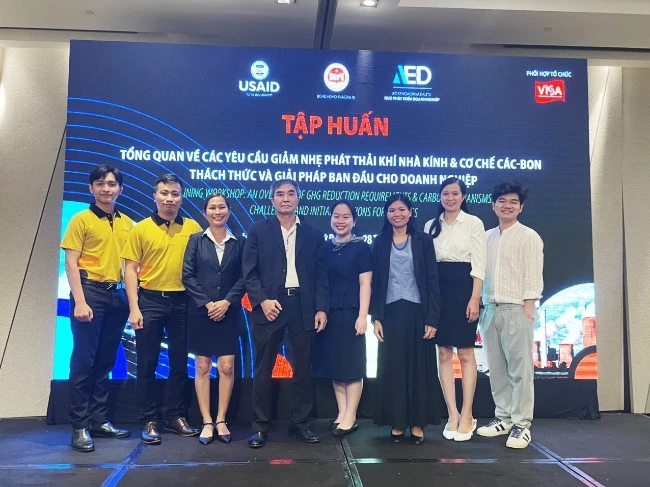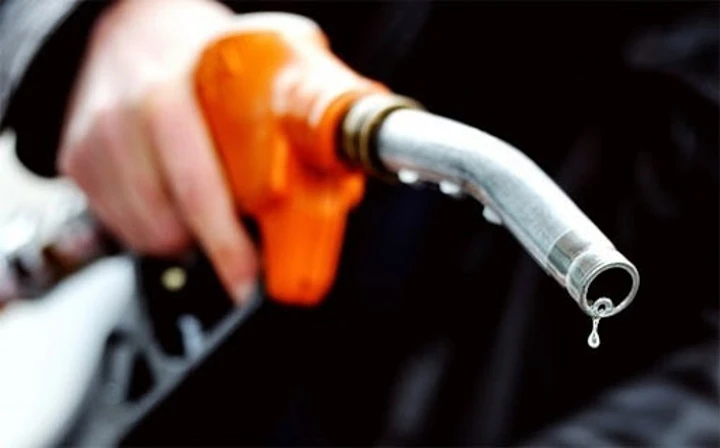


InterLOG participated in the training workshop: An overview of GHG reduction requirements and carbon mechanisms challenges and initial solutions for business
Putting itself in the role of solution creator and carrying the mission of "contributing value and dynamically connecting the social community" InterLOG participated in the Training Workshop on An overview of GHG reduction requirements and carbon mechanisms challenges and initial solutions for business. At the same time, we would connect factories and manufacturers to engage in, and contribute to raising awareness about greenhouse gas reduction and carbon mechanisms for businesses.
The workshop was organized on June 28th, 2022 in Ho Chi Minh by the United States Agency for International Development (USAID) in collaboration with the Department of Enterprise Development - Ministry of Planning and Investment, Vietnam Alliance for Industrial Support (VISA) City.
At the training seminar, USAID experts said that in the current context, reducing greenhouse gas emissions has become a mandatory requirement for businesses globally and in Vietnam, to reduce greenhouse gas emissions. minimize negative impacts on the environment and towards sustainable development.
Recently, Decree 06/2022/ND-CP was issued on January 7, 2022, regulating mitigation of greenhouse gas emissions and protection of the ozone layer. The government also has a roadmap and methods to reduce greenhouse gas emissions. According to Decision 01/2022/QD-CP, there is a list of nearly 2,000 enterprises that must pilot the reporting of greenhouse gas emissions by 2025. In the following years, it is forecasted that a carbon market will form, and develop. Thus, it will have a profound impact on many aspects of the country's economic life. Businesses will have to transform, especially manufacturing enterprises with high emission intensity. Therefore, businesses need to raise awareness and act now to join hands with the country to achieve the reduction target of global greenhouse gas emissions.

The Carbon Border Adjustment Mechanism (CBAM) will impose an import tax on imports into the EU. This tax rate will depend on the emission content in production as well as the difference between the carbon under the EU ETS and the prices in the producing countries. Goods after applying CBAM when entering the EU market will become more expensive unless enterprises implement to cut greenhouse gas emissions.
Currently, CBAM is applied to all imported products in the power, iron and steel, fertilizer, aluminum, and cement industries. Enterprises have a transition period of 2 years (from January 1, 2023, to December 31, 2024) to inventory their greenhouse gases as well as the emissions of units in the supply chain. In the future, the scope and manufacturing sectors covered by CBAM will continue to expand to include more products. Therefore, CBAM will have a great impact on Vietnamese exporters to the EU soon. This mechanism may affect the competitiveness of many Vietnamese exporting enterprises to the EU market.
Economic experts said that enterprises exporting to the EU market need to study the CBAM mechanism and realize that reducing greenhouse gas emissions is an inevitable trend in the world. Markets such as the United States, Japan, and Korea have also been building similar mechanisms to fulfill commitments to cut greenhouse gas emissions and balance carbon prices between domestic products and import products.
Through the training workshop, and as a pioneer in creating logistics and supply chain solutions for businesses, InterLOG has raised awareness about the importance of reducing greenhouse gas emissions and carbon processing. To research solutions for businesses to limit risks, then continue to research further support solutions in transporting goods to help reduce greenhouse gas emissions and carbon mechanisms. From here, contribute to creating effective supply chain solutions for corporate customers.
Moreover, InterLOG helps to connect and encourage more than 20 enterprises and customers who are manufacturing factories to participate in this joint activity. We believe that small efforts such as creating solutions and connecting the community will help spread awareness and join hands to act for the environment and bring sustainable value to the business community.


